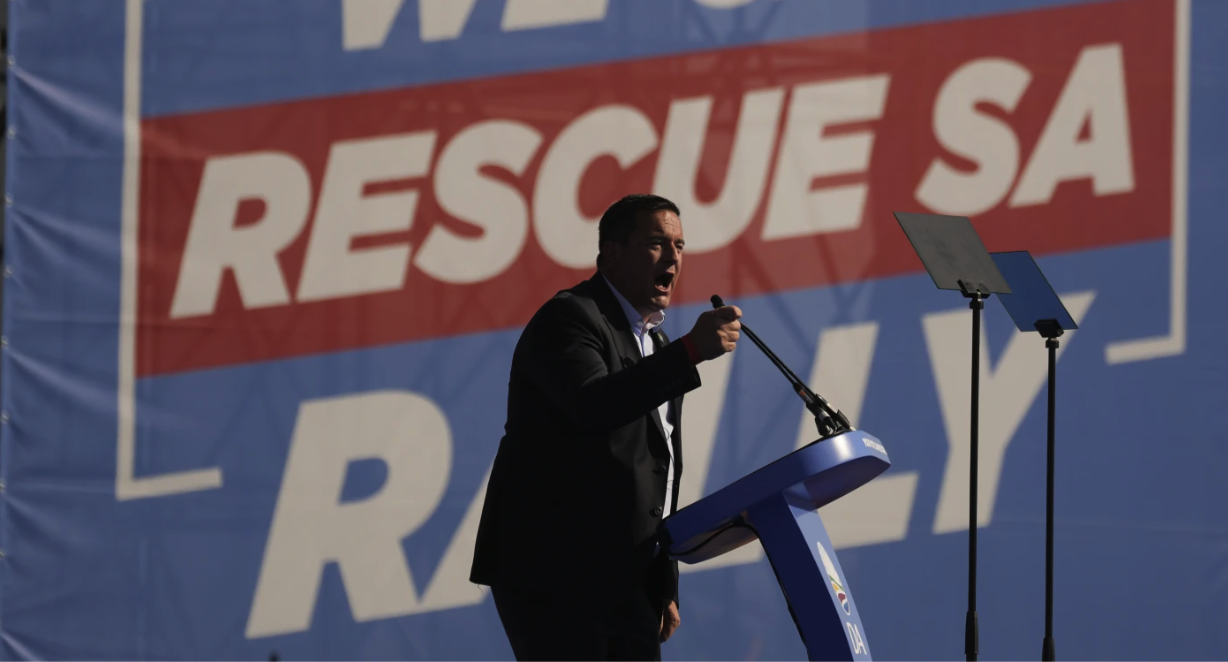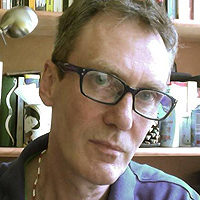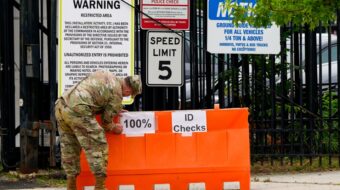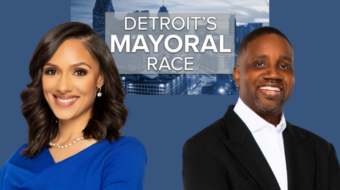
CAPE TOWN, South Africa—Irony pervades the final outcome of South Africa’s watershed elections and the formation of a coalition government.
The ANC’s 11-party Government of National Unity (GNU) signals a major change in South African politics and a shift to the political center-right that appears to mirror similar trends in Europe and elsewhere. But while the rightward drift in the global north generally has degrees of popular support, and also has the threat of fascism looming over it, the opposite is the case in South Africa.
The right-wing Democratic Alliance (DA) has emerged as the biggest winner. This is despite its meager election performance, achieving 22% of the vote, up just 2% from the 2019 elections. The DA has its roots in a range of white political parties and interests that coalesced following the 1994 transition to democracy. Though the party has tried to appeal to the emerging black bourgeoisie, its mask of multi-racialism remains ill-fitting, though the party does have a support base among voters in so-called “Coloured communities” – a demographic that enjoyed certain privileges during apartheid.
The DA’s election campaign was cash-flush. Foreign and domestic funds poured into the party in the hope of ousting the governing ANC. The DA received R65 Million (nearly $3.6 million USD) in donations, compared to the ANC’s R16 Million ($880,000).
Big contributors to the DA included the German Friedrich Naumann Foundation for Freedom, the Australian-based billionaire Martin Moshal (who also funded a number of other parties opposing the ANC), the Oppenheimer diamond merchants, and South Africa’s main commercial media conglomerate, Naspers. But the DA’s success in becoming the main partner of the ANC in government came down to other factors.
President Cyril Ramaphosa’s suggestion to form a GNU and invite other political parties to join it saw a hubristic rush by the DA to not only get into government but to demand 12 ministerial positions, the post of deputy president, and the appointment of all directors-general of ministries under its control. In the end, it had to settle for half this number, and its bid to head the foreign ministry (Department of International Relations and Cooperation) failed.
Another partner in the GNU is the far-right Afrikaner nationalist Freedom Front Plus (FF+), whose leader, Pieter Gronewald, is now in charge of prisons (Correctional Services). The FF+ won just over 1% of the vote in the elections, about half its 2019 total. But despite its small size, the FF+ occupies an influential position among its constituency. It is part of a semi-opaque web of Afrikaner commercial and other organizations, all distinctive for their various use of the colors of the old South African flag, that promote Afrikaner interests in communities that were once strongholds of apartheid support but which have, since 1994, had to de-racialize and become accessible to all.
The FF+ is closely allied to the DA but has a more openly pro-Afrikaner policy. Its precondition for joining the GNU was that the Afrikaner-only enclave of Orania in the Northern Cape be given constitutional recognition, which the ANC has apparently agreed to, though the details of what this means remain unclear.
The third largest party in the GNU is the Inkatha Freedom Party (IPF), another right-wing entrant in government, which has its support base in the province of KwaZulu-Natal. The IFP was founded in 1975 during the apartheid period and was allied to and supported by the white minority regime in the apartheid policy of Bantustan “separate development” and as a fierce opponent of the ANC-led liberation movement of the day. The GNU also contains a smattering of other small centrist parties.
The biggest enabler of both the ANC’s poor electoral performance (40% down from 57% in 2019) and the rise of the right in government is former President Jacob Zuma’s MK Party. By adopting a populist left-wing agenda, though one rooted in right-leaning ethno-nationalism, the MK Party split the ANC vote, appealing to a sizeable chunk of voters who are fed up with the snail’s pace of progress in eliminating poverty, unemployment, crime, and corruption. It was largely the MK Party’s surprise success at the polls, gaining over 14% of the vote, that paved the way for the DA and its friends to gain the substantial foothold in government that they now have.
While Oppenheimer and company may wonder whether all the cash they pumped into the DA’s election campaign advanced their anti-ANC cause, they can celebrate that the MK Party did the job for them, even if ostensibly from the other direction. The same, in some ways, can be said for another formation, the Economic Freedom Fighters, whose leader was kicked out of the ANC 11 years ago and who has since built a sizeable following mainly among the youth. Whatever the dubious and idiosyncratic motives and characteristics of their leaders, support for the MK Party and the EFF reflects grassroots dissatisfaction with the lack of enough palpable and rapid change to tackle South Africa’s crises of under-development and inequality.

If the DA was the biggest winner of the elections, the biggest loser was the majority of the South African people. As the former Public Protector Thuli Madonsela said recently, “The majority of the people [more than 65%, if we combine the votes for the ANC, the MK Party, and the EFF] rejected a call to swing to the right and voted for a mixture of measured and radical transformation at the core of which is hunger for social justice.”
The government may be a centrist and right-of-center mix (the ANC is a broad church of right and left, so quick characterizations are always oversimplistic), but this is far removed from most people’s hopes and aspirations. For Zuma, if his intention in forming the MK Party was to damage the ANC no matter at what cost, then he’s succeeded, but at the cost of bringing the right wing into government – hardly what ordinary folk who voted for the party’s promise of radical change want.
The aftermath of the elections also represents a blow to the left, in particular the South African Communist Party (SACP) and the Congress of South African Trade Unions (COSATU) as allies of the ANC. Both have pioneered a lot of the transformative reforms that have comprised the National Democratic Revolution (NDR). There is now a fear that areas such as workers’ rights, the introduction of a basic income grant, and health reform in the shape of a universal system of health insurance for all will be in trouble. The reforms of the NDR have faced powerful resistance from monopoly capitalist interests that the government, especially under President Ramaphosa, has been loath or unable to oppose. The fear now is that the NDR will become compromised.
Both COSATU and the SACP are closely linked to the ANC by virtue of the alliance of the three organizations, and most SACP and COSATU members are also ANC members. The history of the SACP and the trade union movement is intertwined with that of the ANC, and the alliance partners were crucial to the anti-apartheid struggle as a liberation movement. Zuma’s MK Party steals its name from the armed wing of the ANC, uMkhonto weSizwe, which was founded in 1961 by Nelson Mandela and other SACP/ANC leaders. It would be wrong to underestimate the massive impact of the SACP on both the development of the ANC as a mass movement and the history of the struggle against apartheid.
The SACP, in particular, has also failed to develop its grassroots support and visibility in poor and working-class rural and urban communities. For long, it has mainly been evident on the ground at election time to muster support for the ANC. This, in part, perhaps explains the vacuum that has been filled by populist ‘left’ politics that posits quick-fix solutions to ending equality and poverty. If the ANC-led alliance of the left is to regain ground and develop a mass movement for socialist change, it will have to do so on the basis of much self-criticism, innovation, and restructuring. This much was clear from the recent SACP Central Committee meeting held to assess the impact of the elections and the implications of the GNU. It remains to be seen how this will work out, but there’s an understanding by many in the SACP and its leadership that a massive effort to unite the left, end factional divides, especially in the trade union movement, and build a left-popular front and movement is now needed.
For now, all eyes are on what the new government will do and whether the ANC’s progressive policies outlined in its election manifesto will be watered down. In the immediate aftermath of the elections, the SACP argued that the ANC should form a minority government, as with its still-sizeable seat count in parliament, it would have the upper hand over a fragmented opposition. This option might be viable if the GNU doesn’t work out.
As with all news-analytical articles published by People’s World, this article reflects the views of its author.
We hope you appreciated this article. At People’s World, we believe news and information should be free and accessible to all, but we need your help. Our journalism is free of corporate influence and paywalls because we are totally reader-supported. Only you, our readers and supporters, make this possible. If you enjoy reading People’s World and the stories we bring you, please support our work by donating or becoming a monthly sustainer today. Thank you!










